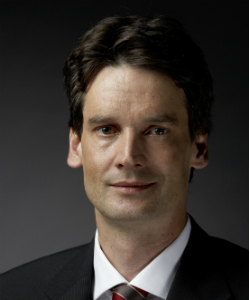Search the latest and greatest job opportunities in sport

In advertising, sport represents performance and assertiveness. The heroes of sport therefore become highly sought-after endorsement partners for companies.
Advertising with an individual athlete can sometimes make a greater impact with less investment than a full sponsorship of a team or event. It does not always work out, however, and companies can easily throw away millions on the wrong kind of individual endorsement.
Popular sports teams or events are comparable to blue-chip stocks on the stock market: they have strong reputation and bring a high yield, but, accordingly, also carry a handsome price. Individual athletes, however, are the so-called small caps on the sponsorship market: they offer the chance of high returns at a lower starting price, but the risk factor is also significantly higher. An athlete can turn out to be unsuitable for the advertised brand or worse still damage that brand through misbehavior in their professional or private lives.
Risk of injury, meanwhile, is in the nature of sport and cannot ever be excluded when dealing with an active athlete. Brands must be aware of this when choosing an ambassador. Fluctuations in form must also be taken into account depending upon the sport.
Private escapades can never be completely ruled out, but here the dangers for companies vary.
A beer brand would suffer more from their star endorsement being caught drunk driving than, for instance, a peanut butter manufacturer. Risks are ultimately also sometimes overestimated.
Research shows that while positive image transfer often occurs unconsciously, consumers differ greatly in how they perceive adverse events and normally separate the brand and the athlete in such cases.
For companies, what is decisive is that their brand and their ambassador match. Does the endorsement transmit the values and image the brand wants to promote? Is the particular celebrity able to reach through to the target group in question? A legendary flop in the German advertising industry would be the cooperation between Olympic swimmer Franziska van Almsick and the window manufacturer Schüco. The partnership was at the time marketed with her posing in a swimsuit behind sound-proofed windows. For the consumer, the connection between a window and a young swimmer simply didn’t add up.
For the past 25 years, we have advised companies and agencies in the selection of athletes as ambassadors. By we, I mean SPORT+MARKT, IFM Sports and REPUCOM . This year we united all three companies under the REPUCOM brand and took the decisive step of bringing Celebrity DBI – the definitive celebrity consumer research tool – from the United States to Germany and 12 other international markets. For a number of years, this index has set the standard for testimonial ranking in the largest advertising market in the world. Now it is available from the UK to Russia, China and Brazil.
We analyze more than 5,000 celebrities in the database and, in addition to their awareness, monitor a range of other key attributes that most influence the purchase decisions of consumers.
Companies and agencies can via ad-hoc queries discover how a potential brand ambassador is perceived by the public and how they are viewed by relevant target groups. No pre-selection of celebrities is required. Any star name, from an athlete to a TV chef, can be analyzed on the desired properties in order to filter the most suitable candidates, be it for regional, national or international campaigns.
The risks of taking on such ‘small cap’ engagements can thus be minimized significantly, even if the threat of injury can’t. Gold medals and sports titles often depend on luck – but the fit of an advertising partnership can now be very accurate planned.
Marcel Cordes is the President Europe of REPUCOM
Search the latest and greatest job opportunities in sport